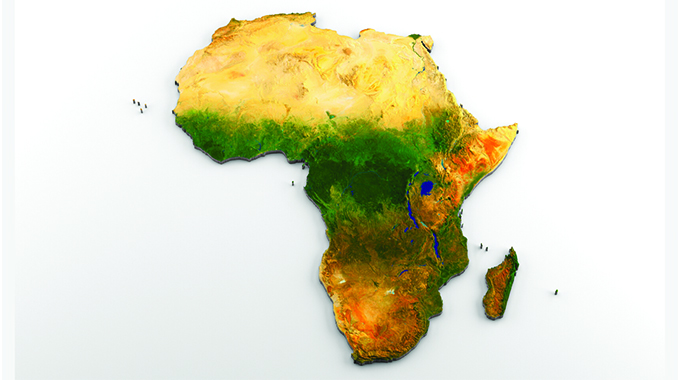This is just not good enough

The matter of reparations and redress for colonial era wrongs has come back to the fore in recent weeks.
Among the notable markers has been the announcement that Belgium will return all that it has left of the DRC’s Patrice Lumumba after murdering him and dissolving his body in a drum of acid – a tooth.
Another major marker has been the announcement by Germany that it will pay compensation to the tune of US$1.3 billion to Namibia for the 1904-1908 genocide.
And not to be outdone has been France’s President Emmanuel Macron, who has issued a garbled statement of some responsibility for his country’s complicity in the 1994 Rwandan genocide.
Before that, back in 2013, Britain said it would pay about US$30 million to around 5,000 Kenyans for the 1950s massacre of tens of thousands of people in an ethnic cleansing pogrom.
Foreign Policy magazine has termed the developments “Europe repents in Africa”.
But is that was has really happened or is really happening? Is Europe indeed ready to view and treat Africa as an equal in the comity of nations? Is it prepared to stop benefitting from the centuries of oppression and establish a progressive partnership?
In the DRC case, while we are all happy that at least a piece of Lumumba is being returned home, Belgium owes the Congolese people much more than a tooth.
From 1879 when King Leopold II, primarily using Henry Horton Stanley, began colonising what he named the Free State of Congo, that country’s people have been enslaved, tortured, raped and killed.
The DRC has not known peace in well over a century, and Belgium is largely responsible for this state of affairs.
Surely, the slate cannot be wiped clean just because Lumumba’s tooth has been returned!
If Europe has truly repented of its sins in the Congo, we should see a restructuring of the mining sector and its proceeds so that the people of DRC finally start benefitting from their immense resources.
Then there is the case of the German genocide in Namibia.
On January 12, 1904 the Ovaherero – led by Chief Samuel Maherero – rebelled against German colonial rule. In August of that year, Germany’s General Lothar van Trotha defeated the Ovaherero in the Battle of Waterberg and drove them into the desert, where many died of thirst. The Germans poisoned the few available water sources to ensure as many people as possible died.
In October, the Nama people also rebelled against the Germans only to suffer a similar fate.
Estimates say when the uprising started, there were around 80 000 Herero but by 1907 there were just 15 000.
In 1985, the United Nations Whitaker Report classified this as an attempt to exterminate the Herero and Nama people.
That is not all.
Concentration camps were established, where people were routinely tortured and murdered. Human experiments were conducted and women were raped.
Now Germany says it wants to apologise and to pay reparations of US$1.3 billion.
All well and good.
But that US$1.3 billion will be doled out piecemeal over the next 30 years!
Surely the slate cannot be considered clean after this.
Germany still controls much of Namibia’s economy. Will it show true contrition by agreeing to a more democratic economic system, one that genuinely empowers the people of Namibia?
We need not say much about Rwanda, where Macron’s half-hearted attempt at showing contrition is nothing short of laughable and should be contemptuously dismissed in short shrift.
And then we go to Kenya, where Britain set aside US$30 million for its Mau Mau victims. Each of the 5 228 Kenyans received about US$3 770 as compensation for torture.
An estimated 90 000 Kenyans were killed by the British in the 1950s. Another 160 000 were summarily detained and tortured. No one has an estimate on how many were raped.
Consider this account by David Larder, a British soldier who at the time conscientiously objected to carrying out the heinous directives of his blood-thirsty government.
“I still suffer from memories of the British apartheid system there and numerous instances of arbitrary killing and brutality by British forces, Kenya police and Kenyan African Rifles. In reality we protected land-grabbing British farmers and enriched UK companies.
“Young troops were encouraged to shoot any African on sight in certain areas. Prize money was offered by senior officers for every death.
The brains of one young black lad I shot with no warning (by orders) landed on my chest. He had no weapons, only a piece of the Bible and part of an English-language primer in his pocket.
“Before I burned his body near the farm where he had been working, I was ordered to cut off his hands, which I did, and put them in my ammunition pouches, as we’d run out of fingerprinting kits. Of course, he was recorded as ‘a terrorist’.
“I was told to shoot down unarmed women in the jungle because they were carrying food to the so-called Mau Mau – a word they never called themselves.
“The whole of this Kenyan tragedy was predictable. Although Kenyan black troops had fought for the British in the Second World War, they were rewarded with their land being taken away, no Press or trade union freedom, suppression of political movements and slave-like conditions of work, which I witnessed.”
It is going to take more than a paltry US$30 million to wipe the slate clean in Kenya.
It is going to take a conscious effort to empower Africans for there to be any talk of Europe repenting. – The Southern Times












Comments